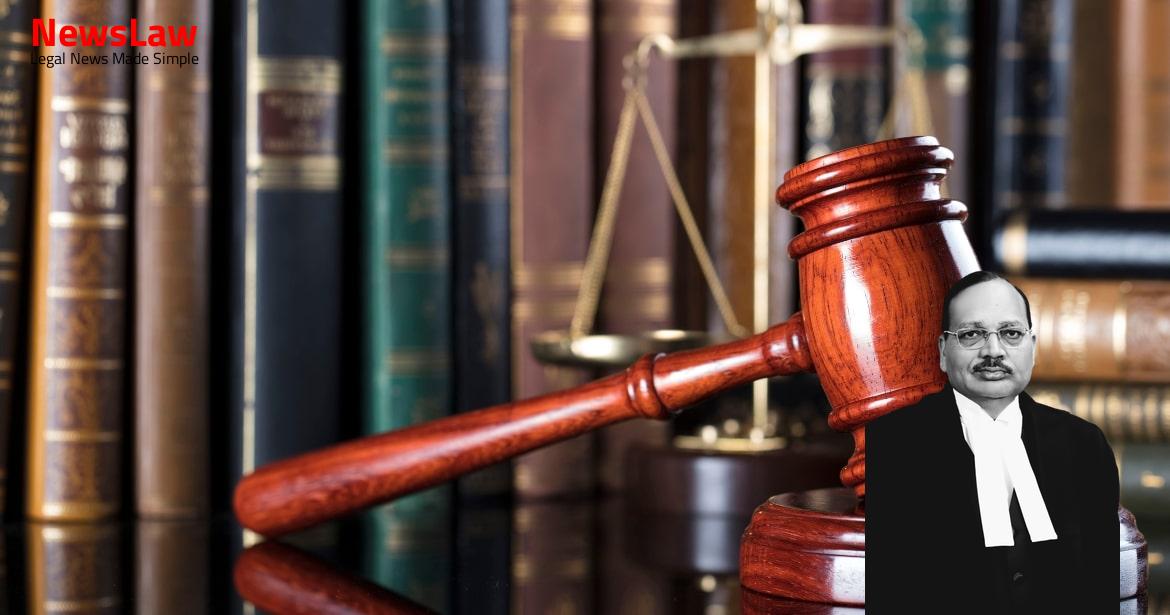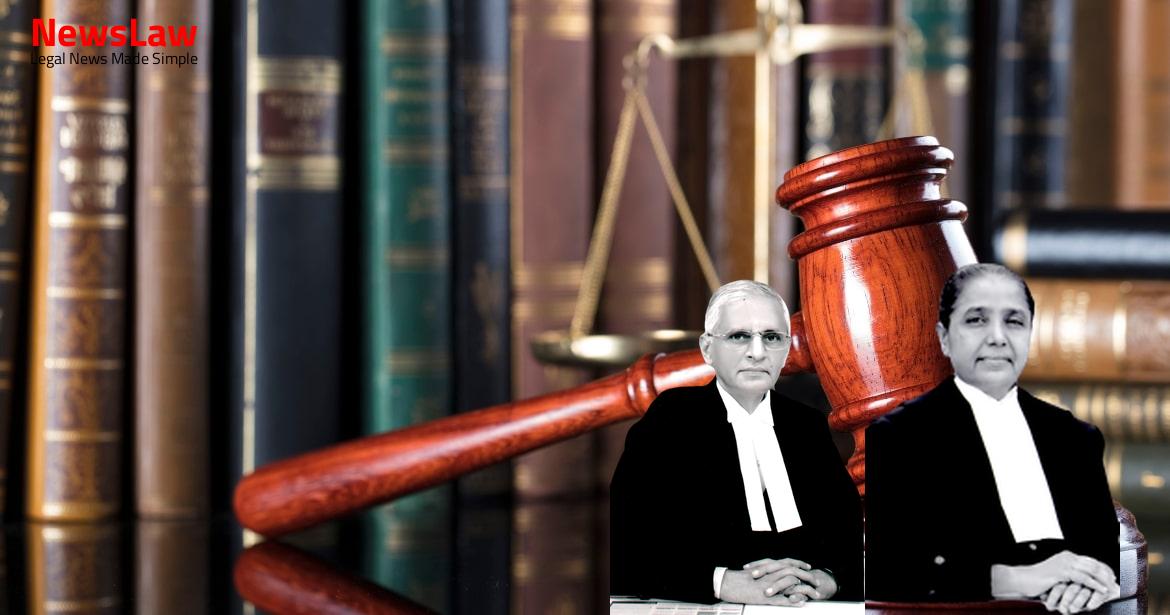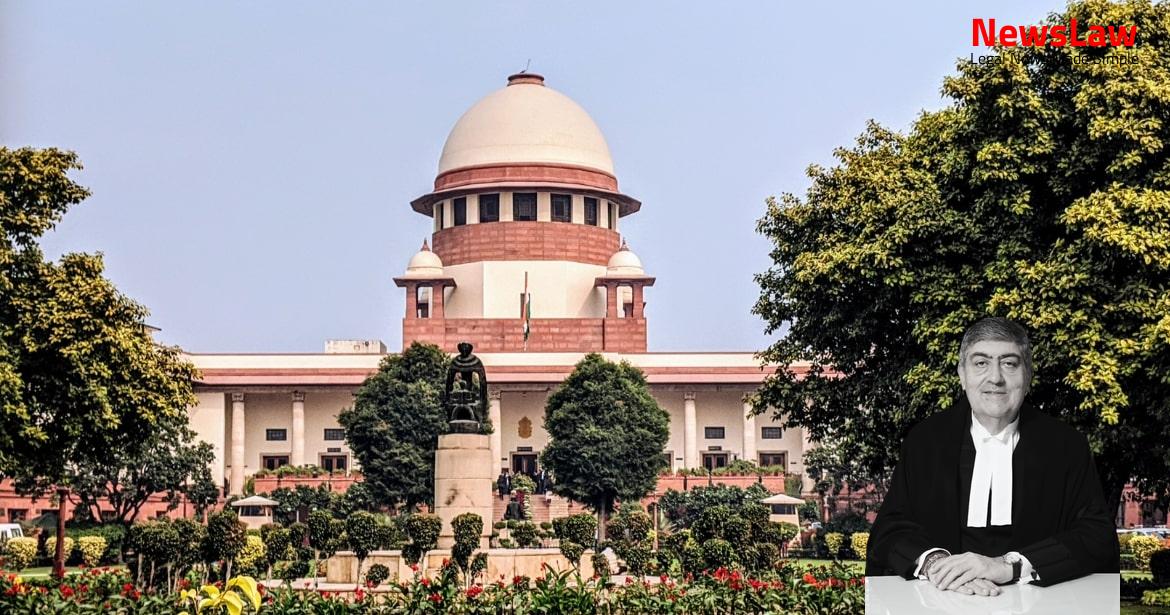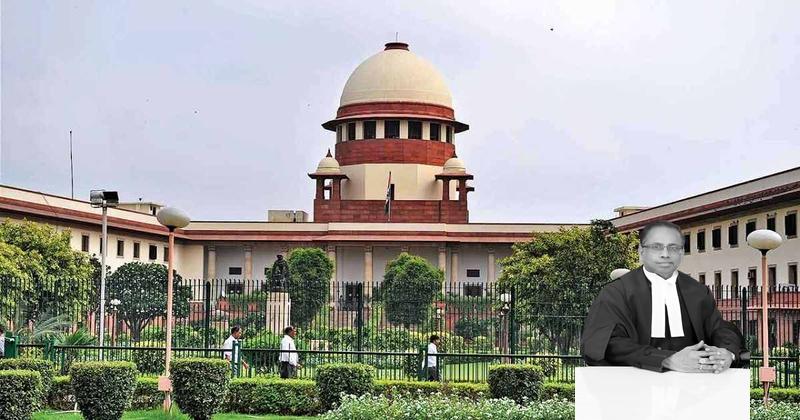In the case of Sanjay Tanti vs. Insurance Company, the Supreme Court of India has made a significant ruling on the maintainability of cross-objections in appeals. The High Court’s decision to reject the cross-objection by the claimants was challenged by the appellants, leading to a crucial judgment. Stay informed about this legal development involving Sanjay Tanti and the Insurance Company.
Facts
- The Motor Vehicle Accident Claim Tribunal rejected the Insurance Company’s contention of breach of terms and conditions by the driver and owner of the vehicle.
- The Tribunal directed the Insurance Company to pay compensation of Rs.2,47,500 to the claimants.
- The Insurance Company filed an appeal before the High Court in which they argued against the liability being imposed on them.
- During the appeal hearing, the Insurance Company stated they were not interested in reviving the appeal.
- The accident involving Sanjay Tanti occurred while he was traveling from Ladma to Goradih by a Tata Maxi.
- The Insurance Company can challenge the quantum of compensation in an appeal.
- Claimants have the right to file an objection in terms of Order XLI rule 22 of the CPC if Insurance Company challenges the compensation amount.
- Cross-objection by claimants is not maintainable if the Insurance Company’s appeal is solely about the denial of liability to pay compensation.
- If the Insurance Company’s appeal is restricted to liability based on breach of insurance policy terms by the vehicle owner/driver, then claimant’s cross-objection is not tenable.
- Rule 249 of the Bihar Motor Vehicles Rules, 1992 allows claimants to file a cross-objection if the Insurance Company challenges the compensation amount awarded.
- The High Court of Patna held that there is no impediment for claimants to file a cross-objection in such cases.
- The present appeal challenges the High Court of Patna’s decision that the cross-objection of the claimants is not maintainable.
Also Read: DAMEPL vs. DMRC: Curative Petition and Arbitral Award Restoration
Arguments
- The claimants have the right to file an appeal as per Section 173 of the M.V. Act.
- The appellants have filed the present appeal by special leave as they are aggrieved.
- The learned counsel for the appellants argue that the High Court erred in finding the cross-objection by the claimants not maintainable, citing that the Insurance Company did not challenge the compensation amount.
- The learned counsel for the Insurance Company submitted that the High Court rightly rejected the cross-objection of the appellants.
- The High Court’s decision to reject the cross-objection was considered appropriate by the counsel for the Insurance Company.
Also Read: Environmental Violations Case: TNPCB v. Copper Slag Unit
Analysis
- Section 116-A of the Representation of the People Act, 1951 allows for appeals to be made to the Supreme Court from orders of the High Court under specific sections of the Act.
- Appeals are to be heard and determined by the Supreme Court following procedures similar to appeals from final orders of the High Court in civil cases.
- The appeal against a Claims Tribunal must be in the form of a signed memorandum accompanied by a copy of the award, with concise grounds of objection.
- A respondent aggrieved by a finding in the judgement underlying the appealed decree can file a cross-objection against the decree.
- Cross-objections must be in memorandum form and deposited with the High Court following specific rules.
- Rule 249 of the Bihar Motor Vehicle Rules, 1992 outlines the manner of appeals in motor vehicle cases.
- Section 173 of the Motor Vehicles Act allows aggrieved parties to appeal within ninety days of an award by a Claims Tribunal.
- Section 39 of the Act limits the right to appeal to specific orders under the Act, excluding appeals for orders not falling within defined categories.
- Section 41 extends the applicability of Civil Procedure Code provisions to proceedings and appeals under the Act, with exceptions for inconsistency.
- Any respondent can support a decree, argue for a finding in their favor, and file cross-objections within a specified timeframe in the Appellate Court.
- The substantive right is the right of appeal and the form of cross-objection is a matter of procedure.
- Taking a cross-objection is the exercise of the substantive right of appeal conferred by a statute.
- A cross-objection can be preferred if the applicant could have sought the same relief by filing an appeal in conformity with the provisions of Section 39(1) of the Act.
- Cross-objection must conform to the requirements of Section 39(1) of the Act; subject to provisions about limitation.
- Order 41 Rule 22 of CPC permits the respondent to file cross-objections to support the decree on any grounds decided against him by the court below.
- If the subject-matter of the cross-objection does not fall within the categories of Section 39(1) of the Act, the cross-objection shall not be maintainable.
- The right to take a cross-objection is the exercise of the substantive right of appeal.
- The distinction between appeal and cross-objection lies in the form and manner of exercising the right, as well as the starting point of limitation.
- The right to take a cross-objection partakes of the right to prefer an appeal.
- If the original appeal is found incompetent, the cross-objection shall also fail on that ground and not be adjudicated on its merits.
- Provisions of Order XLI Rule 22 CPC apply to cross-objections including sub-rule (4) thereof.
- In Bhadurmal v. Bizaatunnisa Begum, cross-objection was held maintainable in an appeal under the Hyderabad Jagirdars Debt Settlement Act.
- The applicability of Order 41 Rule 22 to appeals under the Act was not excluded despite specific provisions in the Hyderabad Act.
- In Superintending Engineer v. B. Subba Reddy, the Court held that cross-objection was not maintainable under Section 39 of the Act.
- The observation that cross-objection is not procedural and not maintainable is deemed incorrect.
- In Inayatullah Khan v. Diwanchand Mahajan, cross-objection was upheld in an election appeal under the Representation of the People Act.
- In Ramasray Singh v. Bibhisan Sinha, the right to file cross-objection was upheld due to the appeal being heard by a pre-established civil court.
- The judgment in Baru Ram v. Prasanni emphasized that the respondent has the right to support the decree under appeal on grounds other than those found by the trial court.
- In A.L.A. Alagappa Chettiar v. Chockalingam Chetty, cross-objections were deemed maintainable in an appeal under the Provincial Insolvency Act.
- The procedure prescribed in the Civil Procedure Code was seen as the standard procedure applicable to courts exercising powers in insolvency cases.
- Contrary view taken by the learned two-judge Bench of this Court in the case of Superintending Engineer & Ors. vs B. Subba Reddy was not agreed with by this Court.
- The judgment in the case of Bhadurmal vs. Bizaatunnisa Begum was relied upon by this Court in arriving at the decision.
- In Bhadurmal vs. Bizaatunnisa Begum, the issue of maintainability of cross-objection in an appeal under Sections 47 to 18 49 of Hyderabad Jagirdars Debt Settlement Act, 1952 was considered.
- The High Court erred in not considering the cross-objection of the claimants on merits.
- Even though the Insurance Company’s appeal was dismissed in default, the High Court was still required to decide the claimants’ cross-objection.
- The Insurance Company challenged the entire award in their appeal, and the claimants were also party respondents in the appeal.
- Sub-rule (4) of Rule 22 of Order XLI of the CPC specifies that even if the original appeal is withdrawn or dismissed for default, the cross-objection must still be heard and determined.
- The cross-objection should be heard after providing notice to all parties involved.
Also Read: High Court Upholds Decision on Minimum Eligibility Cut-Off in Judicial Promotions Case
Decision
- Cross-objection of the present appellants was initially held to be not maintainable.
- Impugned judgment dated 21.1.2016 is quashed and set aside.
- Appeal is allowed and matter is remitted back to the High Court for deciding the cross-objection filed by the present appellants on its own merits.
Case Title: URMILA DEVI Vs. BRANCH MANAGER, NATIONAL INSURANCE COMPANY LTD. . (2020 INSC 107)
Case Number: C.A. No.-000838-000838 / 2020



